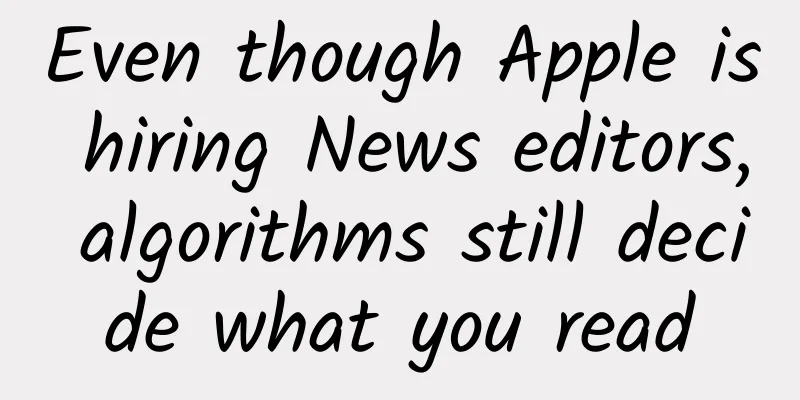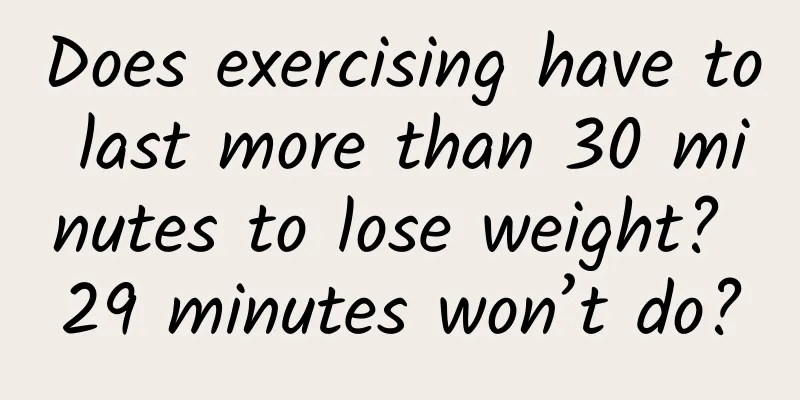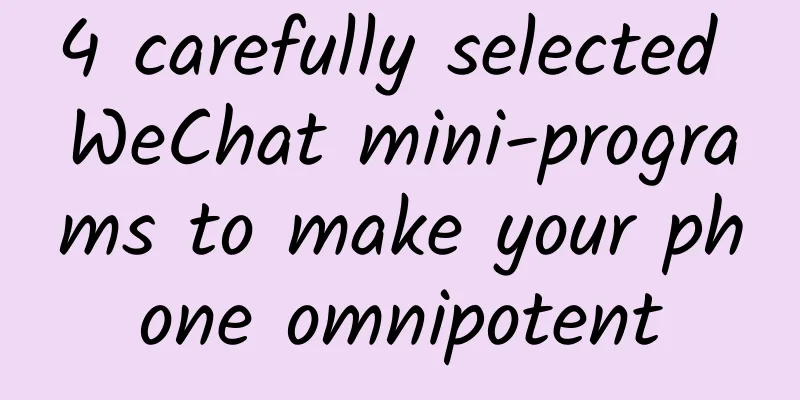Even though Apple is hiring News editors, algorithms still decide what you read

|
When you are used to deciding what you read is no longer the media, but mobile applications and social networks, Apple plans to recruit an editor for the News application that will be launched on iOS9. Following Facebook's launch of Instant Articles and Verizon's acquisition of AOL, Apple announced at the recent WWDC that it would add a news reading app called News to its iOS9 update, joining the increasingly heated content war in the technology industry. News publishers can provide RSS feeds to Apple, or use the tools provided by Apple to create a multimedia reading experience including pictures, videos, etc., which is very similar to Facebook Instant Articles in terms of presentation. However, unlike Facebook, Apple does not seem to want to leave the work of content screening to algorithms and users' social networks: 9toMac discovered today that Apple is hiring editors. The job posting reads: “Successful editors are ambitious, detail-oriented journalists with a penchant for standout content and mobile news. They have a strong instinct for breaking news but are also able to recognize original, surprising stories that algorithms can’t identify.” The job objectives of this position include "helping manage the changing flow of news information, working with the world's largest publishers, acquiring content from high-quality publishers large and small, noticing trends in content development and helping innovate the platform," etc. One way to interpret this news is that in an era where content is increasingly dependent on algorithms and social recommendations, Apple wants to play a humanistic card: News is not a place where major media compete for headlines in algorithmic rankings. Editors will have the right to decide what are more important breaking news and better stories, small and beautiful content will also have the opportunity to be excavated, and unique original content will still have room to survive. From another perspective, Apple's news aggregation is further weakening the role of editors. On the one hand, news content is inevitably becoming a free and basic "service" on mobile devices. Internet companies, operators and mobile phone manufacturers all want to become content portals. Before Apple, some mobile phone manufacturers have built-in news aggregation in their systems: for example, Samsung cooperated with Flipboard, and HTC also came with its own news aggregation service BlinkFeed. Under this trend, even the New York Times, which has always focused on original content, had to remove the paywall and start doing news aggregation. Although aggregation applications usually have manual intervention, algorithm screening still plays the most important role in them. On the other hand, social reading is becoming the mainstream of reading, as exemplified by WeChat Moments and Facebook's Instant Articles. As Wired reminded content producers in an article, while gaining the dissemination dividends brought by channels, the influence of channels on content producers will gradually deepen. The choice of news aggregation will not affect content production like editors in traditional media, but it will affect the judgment of content producers. Apple's editors may be able to prevent content producers from catering to recommendation algorithms and encourage the production of creative content. However, content producers often consider obtaining recommended exposure from as many channels as possible. In addition, Apple's News service also faces the problem of profit model: similar to Facebook, content publishers can publish advertisements in News, and Apple itself will sell advertisements in News and charge advertisers a 30% commission. Like Apple's application ecosystem, it can become another soft power to attract users to buy Apple phones. However, under the premise of this profit model, the editor's right to speak on content seems to be only one of many factors. When Internet companies, social networks, and smartphones can decide what we read, and robots can already produce a considerable amount of content, the position of editor, although not disappearing, can only quietly hide behind many 0s and 1s. |
<<: Debug your code like a doctor
>>: Starting from scratch - 10 steps to become a professional iOS developer
Recommend
Looking at user growth from the perspective of the AARRR model
User growth is a proposition that Internet produc...
Don’t want to drink water and get microplastics? The easiest way is actually… | Environmental Trumpet
Hello everyone, this is the 6th issue of the Envi...
Nangong Guoer "Pinduoduo Product Planning and Explosive Product Creation"
This Taobao series of courses explains in all asp...
Danger! Beware of these 4 conditions that may occur to your parents after COVID-19
On the first day after infection, there may be no...
Technology Outlook 2025: The era of AI autonomy is coming, and trust is the key cornerstone
The new era of AI autonomy and the urgency of ent...
LG E7 vs. Sony A1: Which is the better OLED TV?
As consumption upgrades, consumers' demands f...
Tmall 618 Shopping Festival promotion activities to make huge profits
Tmall 618 Shopping Festival promotion activities,...
The last lunar eclipse of the year is here!
The last lunar eclipse of this year Grand debut! ...
20 auto companies had debts of 809.8 billion yuan last year
In 2016, my country's automobile production a...
A three-year-old child bit off a thermometer and swallowed mercury. You would never guess the correct way to deal with it!
A three-year-old kid in Zhumadian bit a thermomet...
Humidifiers can kill people? These three types of people are not recommended to use them →
As the weather gets colder, whether in the north ...
Radio signals in a storm: riding the wave or hanging by a thread?
With thunder and lightning, howling winds, and po...
How to operate an event well? Share two major tips!
Let’s talk about event operation today. Event ope...
Short video movie app, a sideline project that can earn more than 300 yuan a day
Short video movie app, a sideline project that ca...
How to dominate the circle of friends in the flower photography contest? Here are 6 techniques for taking photos of flowers in spring
Spring is here, and the annual flower photography...









